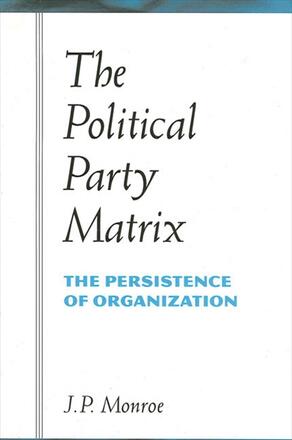
The Political Party Matrix
The Persistence of Organization
Alternative formats available from:
Argues that the political party remains an institution whose primary purpose is to allow elites to coordinate their activities in the political area.
Description
The Political Party Matrix focuses on the organizational life of the party as it emerges through the collaboration of elected officials. Monroe argues that, rather than experiencing an institutional or bureaucratic rebirth, the parties remain what they have always been: institutions through which elites coordinate their activities in the political process requiring neither an elaborate bureaucracy nor a formal organization.
Monroe contends that the growth of political staff allows the incumbent to attract and retain a stable core of workers who can handle the tasks vital to the maintenance of the incumbent's personal political apparatus. Working together, these personal political apparatuses create intricate structures for electoral coordination. Using interviews and state and national data, Monroe provides evidence that office holders and their organizations coordinate their efforts to help other candidates in the electoral arena; they have a complex grooming and recruitment apparatus; and they cooperate in government to satisfy their supporters. The result is an elaborate party network based on the interaction and collaboration of these local units.
J. P. Monroe is Assistant Professor in Political Science at the University of Miami.
Reviews
"Political parties scholarship is in need of fresh thinking and new blood. Monroe's book stands out among the rest as a work of originality."— James G. Gimpel, University of Maryland
"A useful book which provides good insights into a changing party environment." — Stephen E. Frantzich, United States Naval Academy